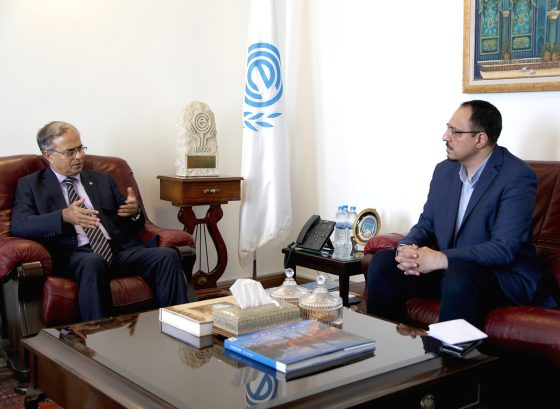“Women and Men in Zimbabwe Have Same Access to Education and Employment” Says Wife of the Zimbabwean Ambassador to Iran
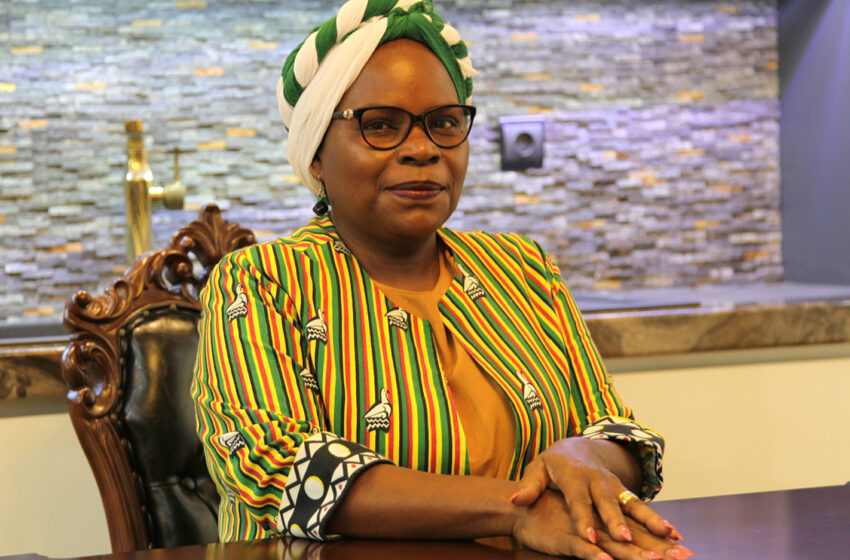
The wife of the Zimbabwean Ambassador to Iran has spent her childhood amidst the challenges of her country’s struggle for freedom. With a background in Town Planning and Business Management, she has gained remarkable achievements in her personal life. This cheerful and vibrant lady passionately shares the cultures and traditions of Zimbabwe as well as her experiences in Iran. She emphasizes the significance of food as a means to foster social and cultural connections in her country and hopes that the friendship and intimacy she experienced in Iran will extend to other foreigners too.
AVA Diplomatic’s Exclusive Interview with Mrs. Shelta Muneyi Kupemba,
Wife of the Zimbabwean Ambassador to Iran
Where in Zimbabwe were you born and where and how did you spend your childhood and young adult years?
I was born in the Eastern province Manicaland and spent my early years there. This was during our war of freedom so I hopped from one primary school to another. I ended my elementary years in Harare running away from the war. My high school years were after independence so more relaxed and structured. I did six years in one high school and off to college back in Harare. I then studied Town Planning at Harare Polytechnic after which I got married to Bright.
What was your father’s profession, and how many siblings do you have?
My father is a retired teacher and he now owns a little shop in the rural areas run by my mum. I have five sisters and four brothers.
What games did you play in your childhood? Were you interested in any form of arts during your childhood? If yes, what art?
During my childhood I loved music, played netball and loved cooking. I also loved making my own clothes.
What are the main handicrafts of your hometown?
The province where I come from is famous for mats and basket weaving. The weavers use baobab bark fibre and plant dyes. Men also make wooden artefacts like fruit bowls, cups bangles and earrings.
When did you first feel proud of cooking?
Being the first child and a girl cooking was a must. By the time I was six I was able to make a meal of sadza and meat for my siblings while my mum did other chores in the fields. In my later life I also started a catering company where I cooked for events like weddings, funerals and different.
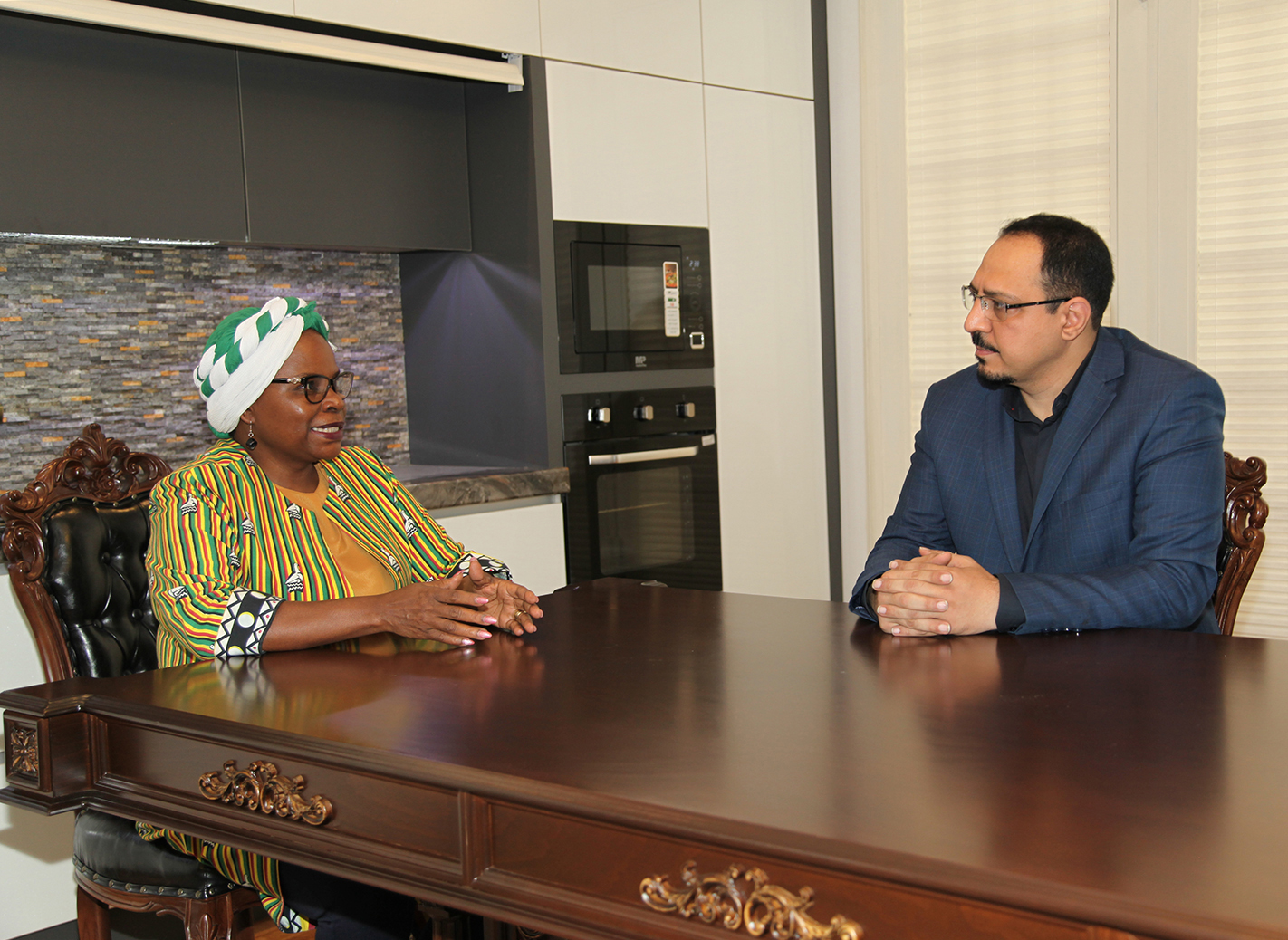 What was your major in university?
What was your major in university?
I completed a Town Planning diploma after high school, and then I majored in Business Management from an American University in Bonn, Germany. I also did a Business post graduate Diploma in London. In 2015 I completed my Masters in Business.
How has the current situation of Zimbabwean women in the social and political arenas changed compared to the past years?
In Zimbabwe women and men have same access to education to employment. The Zimbabwean society has taken strides to curb incidences of domestic violence. Our first Lady Amai (mother) Auxillia Mnangagwa created platforms for debates throughout the country. The debates have given women, men and children a chance to address differences and share views on causes and solutions to reduce violence at family unit level. All members of the family are empowered to deal with sources of violence in families. The Domestic Violence Act 5:16 of Zimbabwe has helped a lot in protecting women against all forms of violence.
Politically, the Zimbabwean government has made strides to ensure women are represented in parliament. The 2013 Constitution of Zimbabwe passed the women’s quota at 33%.Today the quota is topping 28.7% of the 287 members of parliament are now women. In business women can own land and businesses with no hindrances.
How did you meet your husband? Did you have a traditional marriage?
My husband and I were high school sweethearts. We met in 1985 and we were in the same class. Shortly after finishing college in 1989 we had a traditional marriage where he brought his family representatives to my home to pay roora/dowry. After that we had a court wedding.
What are the wedding rituals and traditions in Zimbabwe?
This is a very long process that used to start months before the big day. Recently most of the processes have been cut short. Most of the things are done in one weekend. Some forty to thirty years back, people would have two big days. After payment of roora preparations for the wedding will start with purchasing of the bridal clothes, food and other service providers. Christians would have the big day in church. Traditionalists would send a team from the husband’s side to take the bride. There will be lots of pomp and fanfare.
In Zimbabwe, does the bride’s family provide a dowry?
In Zimbabwe dowry /roora/lobola is paid by the groom’s family. This used to be a token of appreciation for raising a good girl. Nowadays its dependant on how affluent the groom is. Some roora costs are amounting to thousands of US dollars or millions in Zimbabwe ZiG. (1usd = 13 ZiG)
Regarding the process of economic development in Zimbabwe, how has this affected the social life of the people?
Zimbabwe has had its fair share of issues due to sanctions and natural disaster. So, livelihoods in Zimbabwe have been negatively affected by the stagnation of economic development. However, the government has been able to help people build resilience through various programs like redistribution of land. This has improved some citizens’ lives.
How much has your husband’s political career influenced the upbringing of your children?
My four children were born, bred and raised in different countries with different cultures. In short they are all quite cosmopolitan.
You and your husband have been to various countries. Which mission has been the most impactful for you?
Iran holds a special place in my heart. The food, the people and the rich culture reminds me of the warmth and resilience of Zimbabwe. It feels like a home away from home.
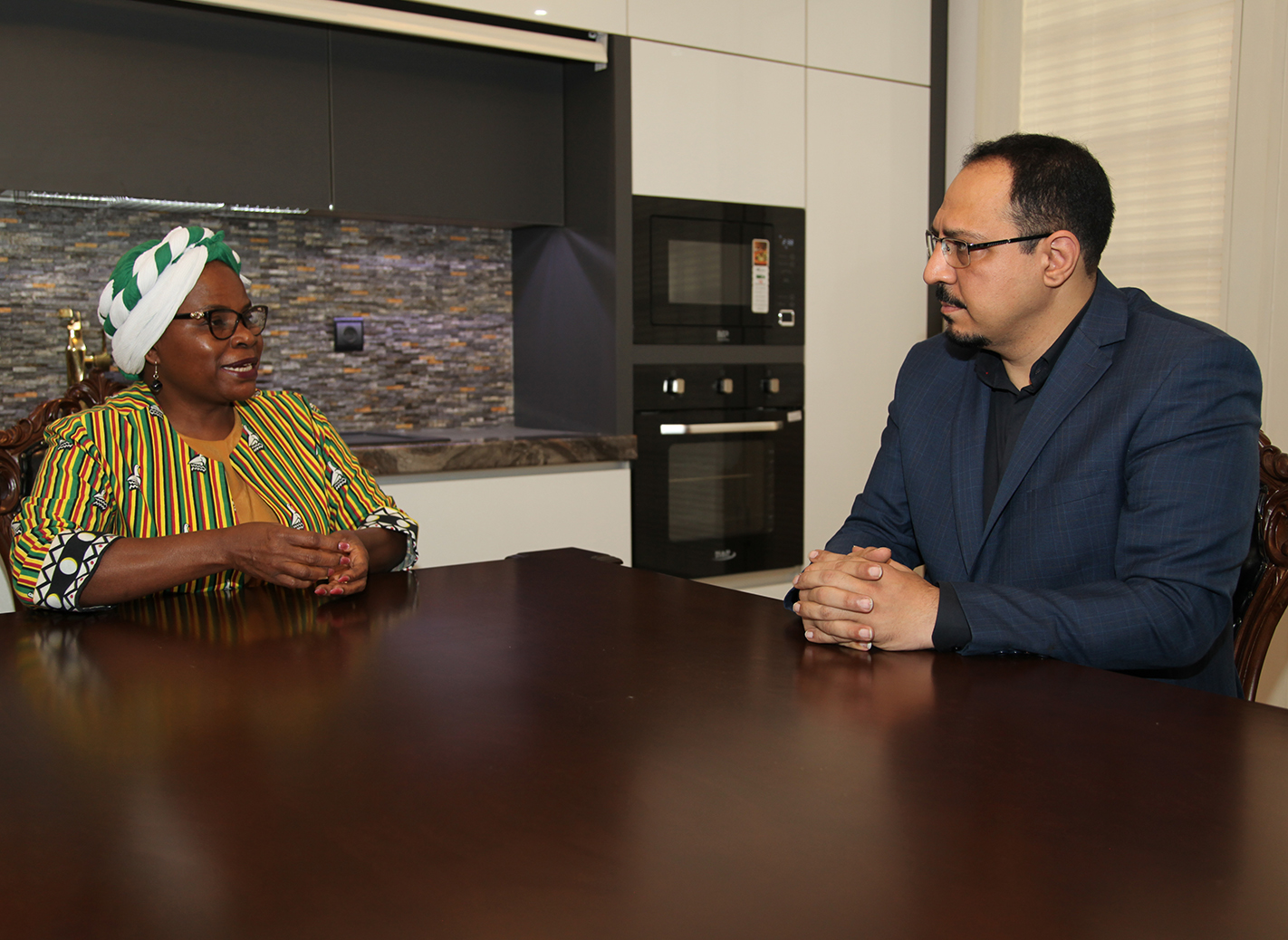 When was your first child born? Are there any special rituals and traditions related to the birth of a child in Zimbabwe?
When was your first child born? Are there any special rituals and traditions related to the birth of a child in Zimbabwe?
My son was born in Zimbabwe in 1990. The rituals are not many. When the child’s umbilical code dries and drops off you take him to the paternal home where the dried up (guvhu)/navel cord must be thrown away by the grandmother together with his hair from the first haircut. Not many families practice this though. This is also the day that the baby must be carried on the back for the first time in a specially made baby carrier/mbereko.
What are the most important festivals and celebrations in Zimbabwe, and how do people celebrate them?
Most Zimbabwean festivals are drawn from the country’s history. People enjoy Zimbabwe Independence on 18 April, Heroes Day on 11 and 12 August.
Traditional ceremonies include rainmaking. Where people go to the mountains to request ancestors to make it rain to evade dry spells that bring droughts in the fields. Also in times of good agricultural produce people come to gather taking turns to help each other harvest crops from the fields this is called nhimbe or gumwe. This can also be done to do any chores that require many people. Whole vaillages or few families can do a nhimbe or gumwe.
How successful have you been in communicating with Iranian people?
Very well, Iranians are very friendly people who do not look down upon people different to them. I feel very comfortable among them. I have made friends that am comfortable to invite to my house.
In your opinion, which Iranian food is closer in taste to Zimbabwean cuisine?
Our foods are quite similar. We eat chicken, lamb and vegetables although we make it differently. I have recently found out that pumpkins are enjoyed here as much as we enjoy them in Zimbabwe. And Zimbabweans and Iranians both have a sweet tooth.
What place does food have in Zimbabwean culture and which dishes are popular in Zimbabwe?
There is saying that goes a relation is not complete until you have eaten together or shared a meal (Ukama igasva hunozadziswa nekudya). Food has a uniting effect in Zimbabwe. Meal times are family times. Zimbabweans enjoy (sadza/shima/ nzima) a thick corn meal porridge served hot with side dishes like meat, vegetables, fish or sour milk –lacto or thick yoghurt.
How do you assess the role of religion in the lives of Zimbabwean people and what religions are commonly practiced in Zimbabwe?
Zimbabweans are very religious people. Most Zimbabweans are Christians. Some practice African Traditional religion. Others are Muslims, Jews, Bhudhists and non -religious.
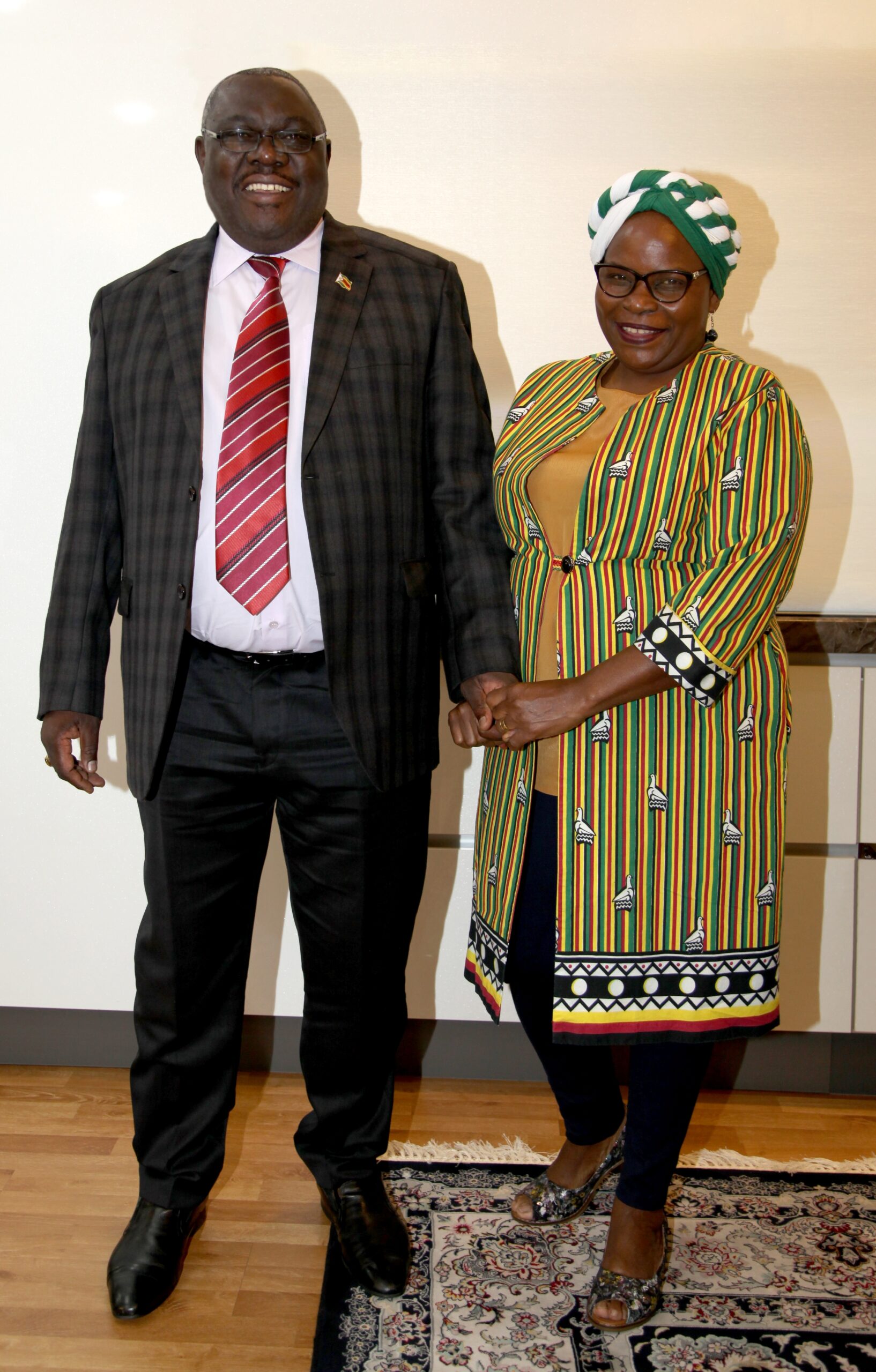 Which of the Iranian dishes can you cook well?
Which of the Iranian dishes can you cook well?
Kadu Polo, and Ghormeh Sabzi.
From your point of view, in what aspects do Zimbabwean and Iranian cuisines differ?
Pork is a staple meat in Zimbabwe and Iranians don’t eat that.
You are a member of the Diplomatic Spouses Group in Tehran. Please tell us about your role in this group. How has your membership in this group improved the quality of your presence in Iran?
The group has helped my social life and because I don’t know Farsi it has been amazing having a support system like this.
In your opinion, what aspect of Zimbabwean culture would be interesting and attractive to people from other countries?
Braii (barbarque) is an essential part of Zimbabwean culture and I think people would really enjoy this. There’s dancing, good food, vibes and music.
As the spouse of Zimbabwe’s ambassador to Iran, what message do you have for the people of Iran?
Thank you for making me feel safe and welcomed in your country. I hope you can continue to show the camaraderie you have shown me to other foreigners.


